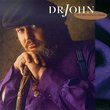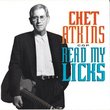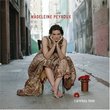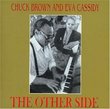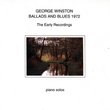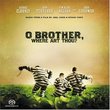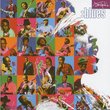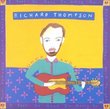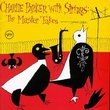| All Artists: Bill Frisell Title: Gone Just Like a Train Members Wishing: 5 Total Copies: 0 Label: Nonesuch Original Release Date: 1/6/1998 Release Date: 1/6/1998 Genres: Blues, Jazz, Special Interest, Pop, Rock Styles: Electric Blues, Acoustic Blues, Avant Garde & Free Jazz, Jazz Fusion, Modern Postbebop, Blues Rock Number of Discs: 1 SwapaCD Credits: 1 UPCs: 075597947922, 075597947960, 755979479226, 075597990317 |
Search - Bill Frisell :: Gone Just Like a Train
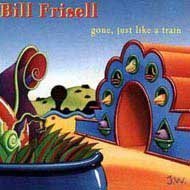 | Bill Frisell Gone Just Like a Train Genres: Blues, Jazz, Special Interest, Pop, Rock
Bill Frisell is a soulful jazz minimalist with a sophisticated sense of harmony, a daring rhythmic approach, and an instantly recognizable, personal sound--part jazz, part rockabilly, part blues, part psychedelia--a remark... more » |
Larger Image |
CD DetailsSynopsis
Amazon.com essential recording Bill Frisell is a soulful jazz minimalist with a sophisticated sense of harmony, a daring rhythmic approach, and an instantly recognizable, personal sound--part jazz, part rockabilly, part blues, part psychedelia--a remarkable melodist who can transmute single notes into sapphire tears. Yet while his fellow improvisors have pursued more and more complex forms, Frisell seems to be reaching back to the simplest folk forms to animate his post-modernist's view of Americana, and Gone, Just Like a Train is a cultural whistle-stop that conveys his land's epic rhythmic dynamism, regional diversity, and backwaters of mystery and quiet wonder. It's as if the Modern Jazz Quartet interpolated Cream, and together with his remarkable collaborators, bassist Viktor Krauss and drummer Jim Keltner, the Bill Frisell Trio successfully plumbs a variety of expressive forms within the raging seas of intellectual complexity that have traditionally defined the domain of modern jazzman. --Chip Stern Similarly Requested CDs
|
CD ReviewsSo Satisfying on Sundays Gordon Smith | san jose, ca United States | 11/23/2001 (5 out of 5 stars) "This is the album where Bill Frissell finally did it. You wake up on Sunday at noon and take half an hour to start the coffee and want to give the world a hug only you're way too tired. This is what you want to hear." Minimalist jazz J. Jackson | Charlottesville, VA United States | 10/30/2001 (4 out of 5 stars) "While watching the movie "Finding Forester", a so-so film with a great soundtrack, I noticed a skeletal rendition of "Over the Rainbow" that supplied just enough notes to make it recognizable. I immediately recognized it as the work of Bill Frisell.Culling a musical phrase down to its essence is what makes Frisell's music at once simple yet profound. I agree with the reviewers who comment that this CD grows on you. Frisell plays in a manner that sounds easy, but few guitarists could duplicate his musicianship. His simplicity belies his facility and technical skill. In the same manner, Tiger Woods shows us all what a simple game golf is.The trio of Frisell, Kraus, and Keltner convey a transparency sustained by their interplay and the skills they each bring to the ensemble. The comparisons with Cream, etc., may seem farfetched given how different this music is from that style, but I understand that comment completely.I would have given this CD three stars at first listen; then four a few weeks later. I may come back later and give it five." His Finest Work Gordon Smith | 01/23/2001 (5 out of 5 stars) "One of my favorite CD's. It took a while to grow on me, but I believe that the best and most rewarding albums take a little time to appreciate (the pop albums with the catchy tunes will drop your interest and attention as quick as they got it). I think it's his best album, especially if you're coming from the world of rock. Unlike so many other modern guitarists, this guy can say SO much with so little. Not that he can't let it rip, but he can be so smooth and play with so much soul - just listen to the album title: "Gone ... like a train." It's a great mix of jazz, rock, folk, and blues. There's so much in this album, so much to discover even after having listened to it 50 times. Sometimes it's slow, and sometimes it grooves. I thought parts of this album were sort of cheesy at first, but man, give it a few listens, and you'll see it's not at all, you just have to listen to hear the intricacies and the touch that he gives his music. His sound is really unique and he's got a great band backing him up (especially that bass), and I have to say that there is not a single song on this album that I don't like (and out of the 250 or so albums I have, only about a dozen would fall into that category). His later albums are also good, but they are much more mellow, acoustic, and lean towards folk and country much more so than this one. If you're checking out Bill Frisell for the first time and you are used to rock/alternative type music, go with this album, give it a good several listens, and as it grows on you, you'll see what I'm talking about."
|

 Track Listings (16) - Disc #1
Track Listings (16) - Disc #1